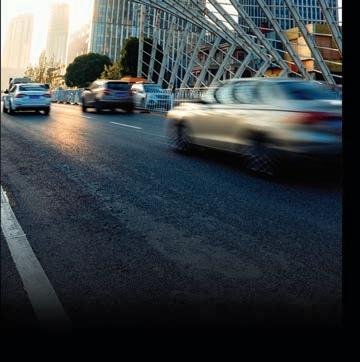
5 minute read
In the News
from Nov/Dec CARS
What’s on your mind? We want to hear from you about anything you read in CARS magazine. Send your email to christine@turnkey.media
I’D LIKE TO SEE MANDATORY RECERTIFICATION TOO!
Mandatory certification in every province would be a start, but I’d also like to see continuing education credits for re-certification. We learn as much as any other profession does, especially with new technology coming out all the time. If we want to be respected as professionals, we should hold ourselves accountable for being as up-to-date as possible. Most other certified professions require a minimum number of continuing education credits to re-certify (among them accountants, kinesiologists, and human resources professionals). As for the sale of parts, there is clearly a problem when the average person is allowed to buy safety-related components like brakes and steering parts, with no proof that they can install them properly. But I need an ODP number to buy refrigerant? Priorities!
Emily Chung
AutoNiche, Markham, Ont.
Got a memory you’d like to share? Send a high-res scan to christine@turnkey.media


Rob Nurse, owner of Nurse's Emission Testing & Repair Facility (operated as Bob Nurse Motors) in Peterborough, Ont., can trace his family’s involvement in the automotive industry all the way back to 1890. He’s got lots of old photographs, some of them mounted on the wall, but most in old boxes. Pictured here is the shop owned by his grandfather Smithson Nurse in nearby Omemee.
TECHNICIANS SHOULD HAVE TO BE CERTIFIED TO PLY THEIR TRADE
I totally agree that automotive repair should require mandatory certification (“The Case for Mandatory Certification,” August 2020). Try going into a heating supply warehouse and buying a natural gas furnace. They will not sell it to you unless you have a trade license. The same should apply for the automotive repair industry. I suspect, though, that auto parts stores wouldn’t like that because it would cut into their sales.
Al Oversby
Draag Transmission, Dryden, Ont.

ON THE JOB TRAINING JUST ISN’T GOOD ENOUGH
I read Allan Haberman’s commentary on the mandatory certification of automotive technicians and must say I am in full agreement. From my perspective in the tire world, I continue to be astounded that passenger and light truck tire technicians are not required to have any formal training prior to installing tires and wheels on consumer vehicles. Passenger tire techs literally receive ‘on the job training’ at their place of employment. Sadly, in some cases the trainers are teaching new technicians bad habits. In my capacity, I continue to encourage mandatory certification for all passenger tire techs. It is a slow process. It seems the practical solution would be to develop on-site training. I only hope it does not take an unfortunate incident to implement new certification guidelines.
Richard G. Bender
President, Tire Dealers Association of Canada
ASE TESTS ARE NOT AN ALTERNATIVE TO CERTIFICATION
Suggesting that technicians could use Automotive Service Excellence certification as an alternative to government accreditation is not the answer. Although I have achieved ASE A1-A9 myself, I recognize that the government needs to be involved in this important issue. In fact, the provinces have a credentialing system. It’s called the Red Seal. They just haven’t made it a requirement. Compulsory certification is the goal, not a new system of credentialing.
Scott Waddle
Precision Auto Service, Langley, B.C.












AIA STUDY SHOWS HOW COVID-19 IMPACTED CANADA’S AFTERMARKET
COVID-19 has disrupted the Canadian economy, and, inevitably, the automotive aftermarket, a recent study shows.
Published every two years, the Automotive Industries Association (AIA) of Canada’s 2020 Outlook Study provides an in-depth examination of the state of the Canadian automotive aftermarket, and presents an analysis focused on forecasts and trends that will likely impact the industry in the future.
Findings show that although the aftermarket industry has remained resilient in even the toughest economical situations, the supply and demand for aftermarket products and services has changed. With more people staying home, for example, vehicles are being used less, and as such, fewer kilometres are being driven.
With more people staying home, for example, vehicles are being used less, and as such, fewer kilometres are being driven.
The spending habits of many Canadians have also changed, and because of that, the purchases of aftermarket products and services also stand to be reevaluated, as purchases are weighed against financial means.
According to the report, it is estimated that total kilometres driven in 2020 in North America may slip to approximately 240 billion kilometers, down 30 per cent relative to the year before. The reduction is expected to curtail demand for scheduled maintenance.
As a result of COVID-19 and new concepts, like physical distancing, many industries are adapting to the new normal, and listing their services online. As such, automotive consumers, too, are becoming more comfortable shopping online, from the safety and convenience of their own homes.
Although the current COVID-19 pandemic is also affecting vehicle sales, an analysis of historical data shows little fluctuations in the number of vehicles in operation during economic downturns. The total number of vehicles in operation are forecasted to reach 29.8


million in 2020.












